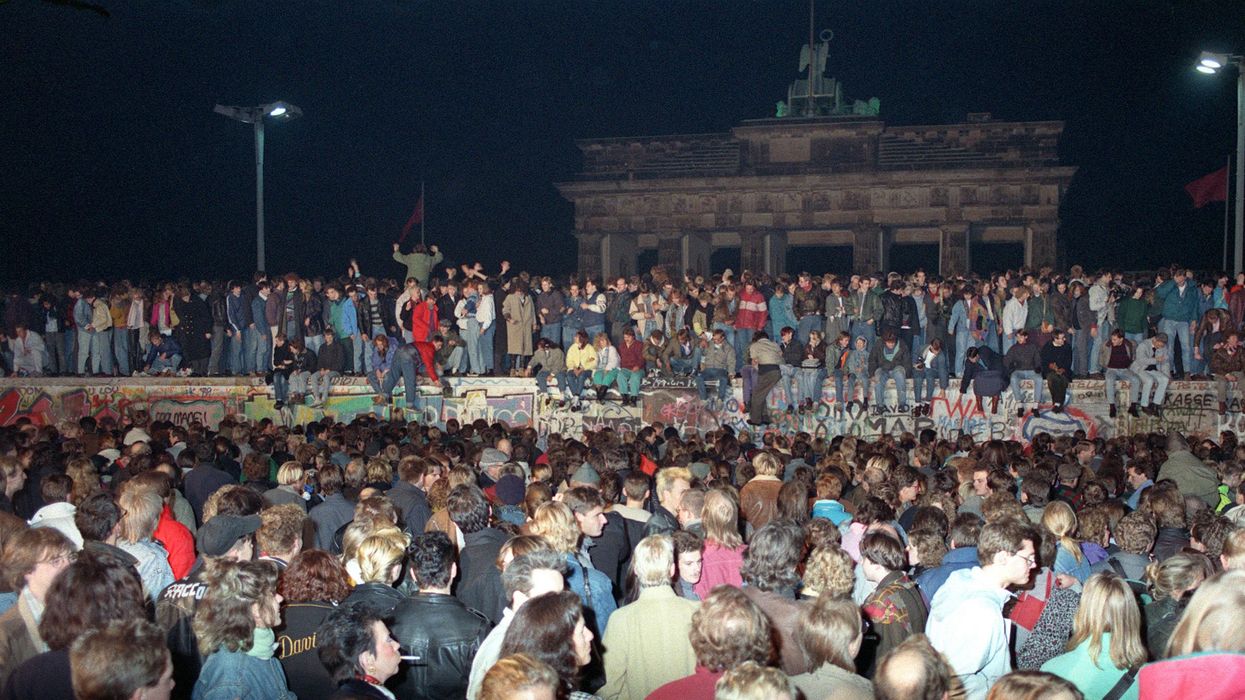Davies is a podcast consultant, host and solutions journalist at daviescontent.com.
On the dramatic day the wall came down — Nov. 9, 1989 — I got a call from my boss at ABC News Radio. “Get on tonight’s flight to Berlin," he said.
For a young network news reporter, it was a dream assignment. Over the next two weeks, armed with a portable cassette recorder, notepad and microphone, I covered many stories of joyous family reunions and discoveries of newly won freedoms.
We alI knew at once that the abrupt decision by Communist authorities in East Germany to remove rigid travel restrictions and allow travel to the West was much more than a big news story: It was history in the making. The Cold War was coming to an end. Nothing would be quite the same again.
Twice since then, our world changed in a single day: the terrorist attacks of Sept. 11, 2001, and then one month ago on Thursday, Feb. 24, with Vladimir Putin’s malevolent, bloody invasion of Ukraine.
These sudden events should force us to alter glib perceptions about the world, and they are reminders that confident predictions made by economic forecasters, stock pickers and political pundits are often hopelessly wrong.
“ History throws its curves,” Peggy Noonan wrote in her Wall Street Journal column earlier this month. “You watch stunning new factors emerge and at some point you feel grateful to be humble. This ol’ world can still surprise. It can confound every expectation.”
Perhaps we need a greater sense of modesty and a deeper faith in democracy. The deep flaws of our system are well-advertised, and rightly so. Racism, inequality, environmental destruction and rigid partisan polarization are the focus of daily news coverage. But the quiet quotidian protections offered by the rule of law, separation of powers and our constitutional system of governance also deserve greater attention and vigilance.
The people of Ukraine, and their president, Volodymyr Zelensky, know what they’re fighting for. Brave reporters in Kyiv and other Ukrainian cities are risking their lives to tell the remarkable stories of resistance, defiance and national pride. “No matter what happens in Ukraine, Putin will be a loser with no moral stature and Zelensky will have towering moral stature,” wrote Maureen Dowd in The New York Times.
That’s a provocative statement, and I would argue that we need greater context for the ideas behind it.
While urgent news headlines give us a sense of what happened in the past 24 hours, they usually lack context about the history and unique challenges faced by a people at war. Perhaps we need to change our media consumption habits.
As a podcaster, I believe that our medium is uniquely positioned to help listeners gain a richer, deeper understanding of the world.
At their best, podcasts are intimate, intelligent and informal. Unlike social media, they develop a set of ideas over time — often half an hour or longer. Podcasts come without the often weird distractions of video ("does that news anchor’s tie look strange, huh?”) and pop-up messages on computer screens. We usually listen to them alone — while commuting, exercising or walking the dog. Unlike broadcast media, where the audience often tunes in halfway through a story, podcast listeners always start at the beginning.
“The Daily” from The New York Times and “The Economist Asks” are good places to look for context. Unlike some of their competitors, both of these podcasts usually tackle a single subject per episode and often go deep.
“ How Do We Fix It? ” — the show that I co-host and publish — has put out two recent primers in response to the war. One, with Yale University historian Marci Shore, looks at the recent changes in Ukraine and growing support for democracy and civic pride in the years immediately before the Putin invasion. The second episode considers whether the cause of global democracy has been strengthened by the alarming events of recent weeks.
While expressing solidarity and sympathy for those who are fighting for their lives in Ukraine, we can all gain a deeper understanding and respect for the universal principles that we share together.






















Trump & Hegseth gave Mark Kelly a huge 2028 gift